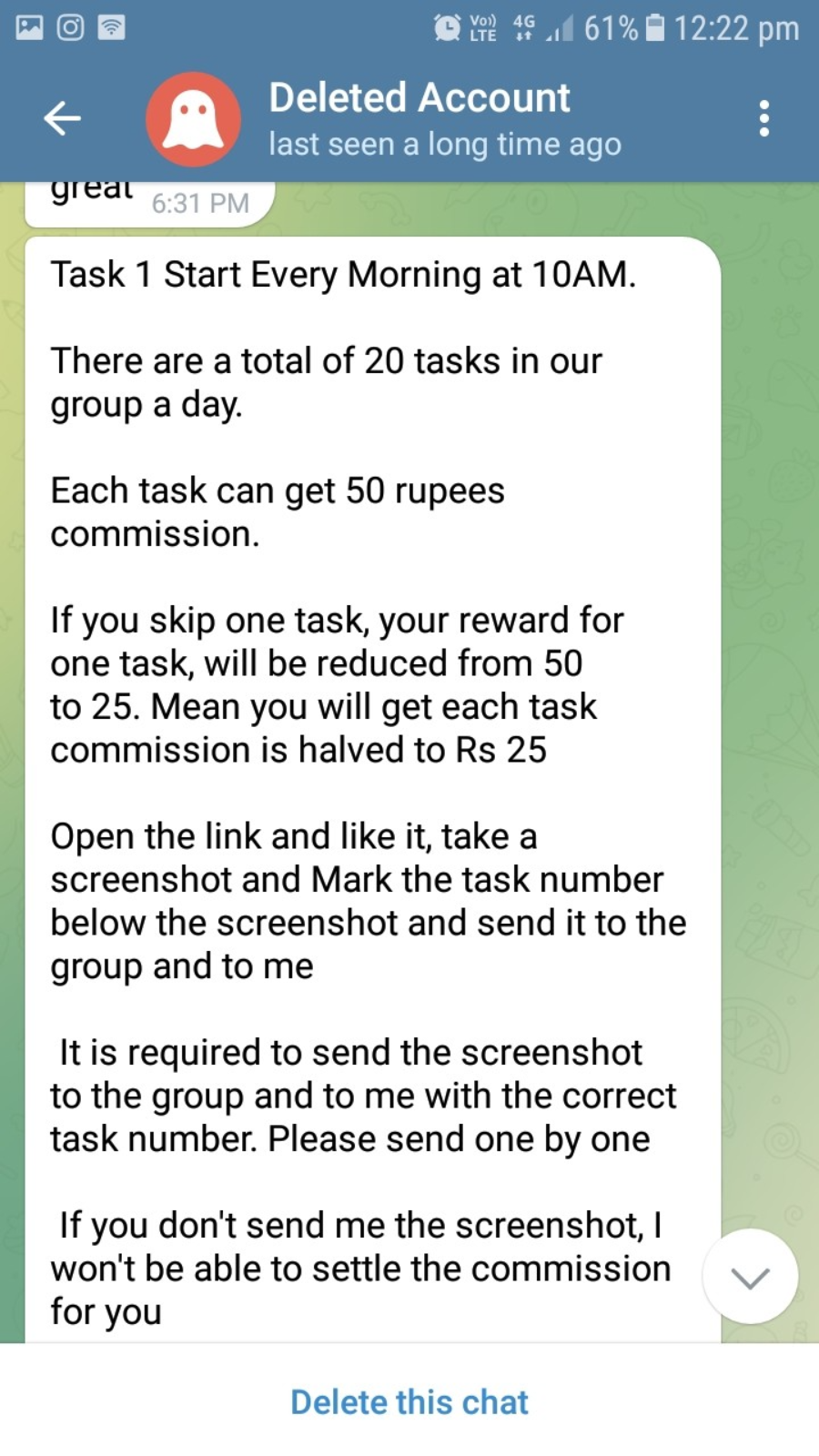

Introduction
The digital age has ushered in a myriad of opportunities and challenges, and while the internet is a treasure trove of information, it's also home to a multitude of scams. One such scam that has gained prominence in 2023 is the "Telegram Prepaid Task Scam." Scammers are taking advantage of the widespread use of the Telegram messaging app to dupe unsuspecting individuals into participating in fraudulent schemes. In this blog post, we'll dive into what the Telegram Prepaid Task Scam is, how it works, and most importantly, how you can protect yourself from falling victim to it.

What is the Telegram Prepaid Task Scam?
The Telegram Prepaid Task Scam is a deceitful scheme designed to exploit the trust and anonymity associated with Telegram, a popular messaging app. The scam typically involves scammers posing as legitimate entities, offering individuals the chance to participate in simple tasks in exchange for prepaid gift cards or cryptocurrency. These tasks may include clicking on links, downloading apps, or sharing personal information.

How Does the Scam Work?
Initial Contact: Scammers reach out to potential victims through Telegram, often using fake profiles or impersonating well-known organizations. They offer lucrative deals or promises of easy money.
Task Assignments: Victims are instructed to perform a series of tasks, which may seem harmless or straightforward. These tasks could involve clicking on suspicious links, downloading potentially harmful apps, or sharing personal information.
Prepaid Card or Cryptocurrency Demands: After completing the tasks, victims are asked to send prepaid gift cards or cryptocurrency as a form of payment. Scammers claim this is necessary to receive their "earnings."
Ghosting: Once the payment is made, scammers disappear, and victims are left with financial losses and the realization that they have been deceived.
Why is the Telegram Prepaid Task Scam So Effective?
Anonymity: Telegram offers a level of anonymity that scammers can exploit to conceal their true identity.
Trust: Many people use Telegram for legitimate purposes, making it easier for scammers to gain victims' trust by leveraging the app's reputation.
Lack of Regulation: The relative lack of regulation on platforms like Telegram means that scammers can operate with fewer constraints.
Protecting Yourself from the Telegram Prepaid Task Scam
Verify Identities: Always verify the identity of the person or organization contacting you. Don't trust unsolicited messages, especially if they seem too good to be true.
Be Skeptical: Be cautious when asked to complete tasks involving links, downloads, or sharing personal information. Investigate the legitimacy of such requests.
Never Send Money: Never send prepaid gift cards or cryptocurrency to anyone you don't know personally or trust explicitly.
Use Security Software: Employ reliable antivirus and anti-malware software on your device to detect and prevent malicious activity.
Report Scammers: If you encounter a scam on Telegram, report it to Telegram's support team and local authorities.
Stay Informed: Keep up-to-date on common scams and fraud schemes. Awareness is your first line of defense.

Conclusion
The Telegram Prepaid Task Scam is a modern and cunning deception that preys on the trust and anonymity of the popular messaging app. Falling victim to such scams can lead to financial loss and emotional distress. The best defense is a combination of vigilance, skepticism, and an understanding of how these scams operate. Remember, if it sounds too good to be true, it probably is. Protect yourself and your loved ones by being informed and cautious in your online interactions.


